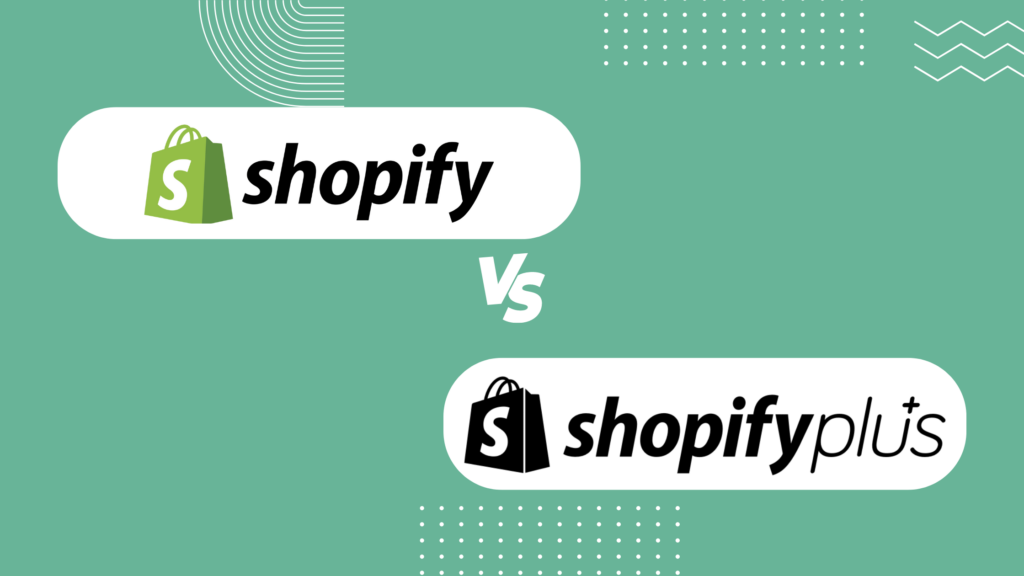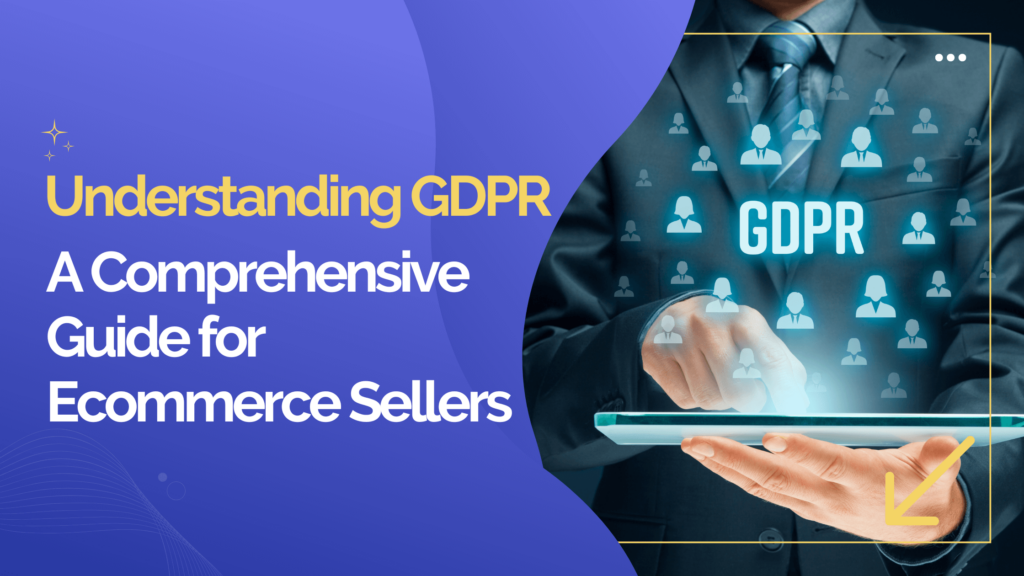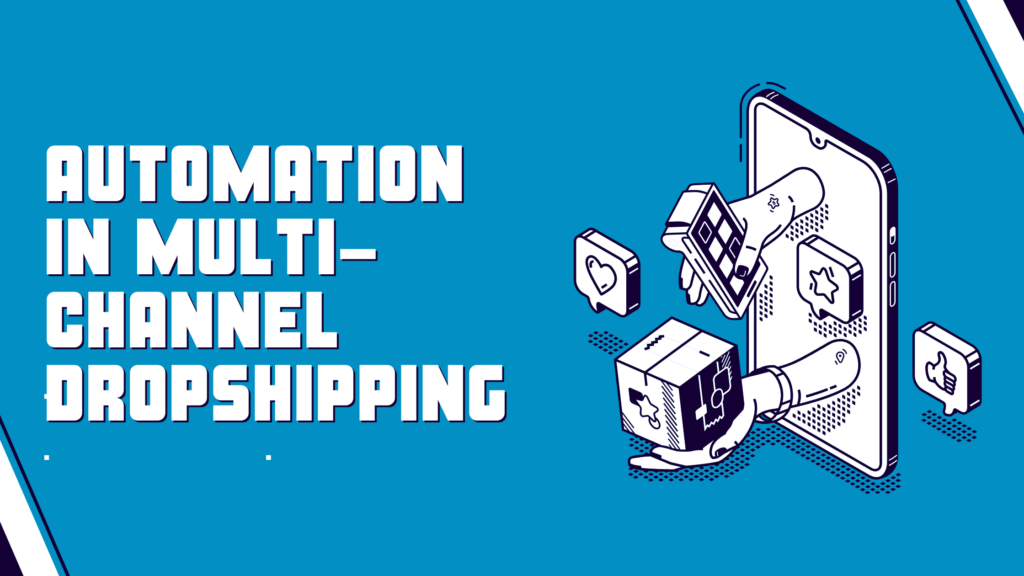Comparing: Shopify vs Shopify Plus
Before you step into the world of business, you need to be sure of what online store system you are picking. The right selection will be a big decision for your business. Currently, there are two most popular ecommerce platforms, Shopify and Shopify Plus. Today, we are comparing both platforms based on pricing, automation, functionality, scalability, and support.
What is the difference between Shopify and Shopify Plus? This is where we determine which one is better for our business. The main difference between both is that Shopify is for small to medium ecommerce businesses. Whereas, Shopify Plus is for bigger companies like an Enterprise.
It depends on the business growth on which one you need to continue with. Shopify is itself the ideal ecommerce platform for most users but Shopify Plus takes it to another level. Let’s understand the differences and similarities between Shopify and Shopify Plus.
Overview of Shopify
Shopify is your helping hand in creating an online store for your small business. It also helps in managing the store with the set of tools that are offered. With its user-friendly interface, customizable templates, and extensive features, it helps ecommerce business owners sell products online.
Shopify helps with in-store setup, the addition of products, order processing, shopping cart, and inventory management seamlessly. Having marketing tools like analytics and integrations, help the online store to grow and scale their online presence.
Shopify is ideal for those who own a small business of online selling. It is helpful for beginners as starting an online store can be tricky. With Shopify’s easily understandable features, the experience becomes seamless.
Overview of Shopify Plus
Shopify Plus is an upgraded version of Shopify. It includes big things for big businesses like cloud hosting, organizing admin, best functionalities, and better support. It has better integrations than Shopify which makes it the omnichannel enterprise-level platform.
Let’s take an example to understand it, you own a business that has two parts. One is “How behind the scenes” works and the second is “How it looks to the customers”. When you make these two parts separate, you gain more control over everything. This is what Shopify Plus does for you.
When comparing Shopify Plus vs Shopify Advanced, you’ll notice that the Advanced version is for smaller, simpler stores.
Is Shopify Plus worth it?
Shopify Plus offers features like organization admin through which you can manage all your stores from one location. It lets you add custom apps and use programs like Partner Program, POS Pro, Plus Community, and others. Shopify Plus comparison with Shopify instills that both target a different set of customer base.
Key Features of Shopify
A standard Shopify plan is a combination of versatility, ecommerce tools, payment processing at checkout pages, and scalability. This makes it a top choice for business users who plan to launch their ecommerce store. Shopify has many features and we will explain the top 5 features here:
Ease of Use
Shopify offers an easy-to-use interface that makes it easy for users to set up their online store. The users can manage it without using extensive technology knowledge. With customizable templates, and drag and drop functionality, it allows the user to design their store accordingly.
Versatile Storefront
Shopify is versatile enough for users to create a customized store to reflect the brand identity. The themes are designed as per the branding requirements which can be used accordingly. Shopify’s theme editor lets users change CSS and HTML code to create the look they want for their store.
Powerful Ecommerce Tool
Shopify offers tools and features that help the business manage their online sales. Inventory management, order processing, and CRM are some features offered by Shopify. Other marketing tools include email marketing, discount codes, and abandoned cart recovery. Built-in analytics and reporting features are used to track sales performance and customer behavior.
Secure Payment Processing
Shopify ensures secure payment processing for both merchants and customers. The platform integrates with over 100 payment gateways, including Shopify Payments. This offers seamless checkout experiences and competitive transaction fees. Shopify follows strict security standards to protect payment information from unauthorized access by encrypting it.
Scalability and Growth Opportunities
Shopify can support all sizes of businesses, from start-ups to enterprise level. For growing business and their evolving needs, upgrade to Shopify for scalable pricing plans and flexible features. Shopify app store gives access to multiple third-party apps and integrations. This allows the users to extend the functionality of their store and unlock new growth opportunities.
Key Features of Shopify Plus
Comparing Shopify Advanced vs Plus, we know that both are for different target audiences. For Shopify Plus merchants, there are a range of key features that we will understand below. Here are the top 5 features of Shopify Plus:
Advanced Customization and Scalability
Shopify Plus offers customization options and scalability for high-growth businesses. The access to dedicated account managers and enterprise-level infrastructure helps the merchants customize their online store. Shopify Plus also provides advanced APIs and scripting languages, such as Liquid and Shopify Scripts. This enables developers to build complex functionalities and integrations.
Enterprise-Grade Performance and Reliability
Shopify Plus boasts a reliable infrastructure designed to handle high-traffic volumes and large-scale operations. The platform offers unlimited bandwidth, automatic scaling, and industry-leading uptime guarantees. This ensures that merchants can deliver fast and seamless shopping experiences to their customers, even during peak demand periods.
Multi-Channel Selling and Global Expansion
Shopify Plus enables merchants to expand their reach and sell across multiple channels. These include online storefronts, social media platforms, marketplaces, and brick-and-mortar stores. It has built-in integrations with leading platforms like Amazon, eBay, and Facebook.
It offers support for multiple languages, currencies, and localized storefronts. Shopify Plus empowers merchants to tap into new markets and drive international growth.
Advanced Automation and Workflow Tools
Shopify Plus provides automation and workflow tools to streamline operations and drive efficiency. Merchants can automate repetitive tasks such as order processing, inventory management, and customer segmentation using Shopify Flow. Shopify Plus offers customizable scripts and APIs. This allows merchants to create personalized shopping experiences, implement dynamic pricing strategies, and optimize conversions.
Dedicated Support and Strategic Guidance
Shopify Plus offers dedicated support and strategic guidance to help merchants succeed. Each Shopify Plus merchant is assigned a dedicated launch engineer and success manager who provides personalized assistance. They also offer strategic advice and ongoing support.
Shopify Plus offers exclusive access to a global network of experts, partners, and resources. These programs help merchants stay ahead and grow by providing training, events, and industry insights to beat the competition.
What is the Difference between Shopify and Shopify Plus
As the target audience is different for both Shopify Basic vs Shopify Plus, there is very little similarity. On the other hand, below are some feature comparisons of both.
| Feature | Shopify | Shopify Plus |
| Pricing | Starts at $29/month Tiered pricing based on features and transaction fees | Shopify plus pricing is tailored to enterprise-level needs |
| Customization | Limited customization options, especially for themes and checkout process | Extensive customization capabilities including access to source code and dedicated account management. |
| Functionality | Basic features for small to medium businesses | Shopify plus plan has advanced features for high-volume businesses |
| Scalability | Suitable for small to medium-sized businesses | Designed for high-volume businesses with complex needs |
| Performance | Shared infrastructure, may experience slower load times during peak traffic | Dedicated infrastructure with enhanced performance and reliability due to dedicated resources |
| API Access | Access to Shopify’s RESTful API for integrating with third-party apps and custom development | Full access to Shopify’s API, including Plus-exclusive APIs for enhanced functionality |
| Support | 24/7 support via phone, email, and live chat | Dedicated support with priority response times and a dedicated account manager |
| Security | Level 1 PCI DSS compliance, SSL encryption, and fraud prevention measures | Enhanced security features, including exclusive access to the Shopify Plus Certified App Partner program and customizable user roles |
| Launchpad | Automated scheduling and deployment of sales campaigns and product launches | Advanced automation tools for managing sales events and promotions |
| Wholesale | Limited wholesale features, requires third-party apps or customization | Built-in wholesale channel with advanced features like tiered pricing, custom catalogs, and dedicated support |
| Internationalization | Multi-currency support, but requires third-party apps or customization | Enhanced multi-currency capabilities with native support for multiple languages and currencies |
Pros and Cons of Shopify
Listing the Pros of Shopify
- It has a user-friendly interface and an intuitive platform. It allows the user to set up the online store and manage it easily and seamlessly.
- Shopify merchants have access to an extensive app store. Through this, the users can enhance the store functionality and customize it.
- Shopify has reliable customer support that works 24/7. The support is provided via live chat, email, and phone.
- The themes offered by Shopify are optimized for mobile devices. With this, the user has a seamless shopping experience on tablets and phones.
- Plans offered by Shopify are suitable for all business types. This allows the business owners to start small and scale up as required.
Listing the Cons of Shopify
- In addition to monthly subscription fees, Shopify charges additional fees on each transaction. This increases the cost of business as well as the shipping rate.
- An additional coding knowledge or an advanced developer is required to work on the advanced customization.
- The dependency on the app store is too much. The app store provides additional features but the increased reliability creates complexities. This can happen during flash sales too.
- For a small business, Shopify subscription plans can be costly.
- Migration from Shopify to other platforms might be a challenging task. It may result in data loss or disruption.
Pros and Cons of Shopify Plus
Listing the Pros of Shopify Plus
- Shopify Plus offers unlimited staff accounts. As it can take unlimited bandwidth and high traffic volume seamlessly, it is the best choice for business.
- Shopify Plus partners with the users to offer advanced features. The features like automation, multi-channel selling, and custom checkout processes.
- In Shopify Plus Academy, you will get priority support with dedicated account managers and 24/7 assistance.
- Shopify Plus offers flexibility and customization for the users. This way the user is able to create the desired online store.
- Security measures include Level 1 PCI DSS compliance. Regular updates are also provided to protect against cyber threats.
Listing the Cons of Shopify Plus
- Shopify Plus comes with a significant monthly subscription fee, which may become difficult for smaller businesses.
- The learning curve is steeper which makes the advanced features, set, and management complex.
- It may become time-consuming to migrate existing stores into Shopify Plus.
- Despite having a long list of in-built features, the third-party app selection is limited for Shopify Plus.
- Businesses using Shopify Plus are tied to the Shopify ecosystem. This limits the terms of integration with other platforms.
Who Should Use Shopify and Who Should Use Shopify Plus?
If you have a small to medium-sized business then Shopify is the best choice. You can also opt for Shopify if you are looking for a user-friendly and cost-effective solution. However, if you have an enterprise level online store then Shopify Plus will become the right partner. It also helps with high volume sales and complex requirements like scalability, advanced features and dedicated support.
In the end, the decision depends on the user on the basis of specific needs, budget, growth, and business goals of their business.





